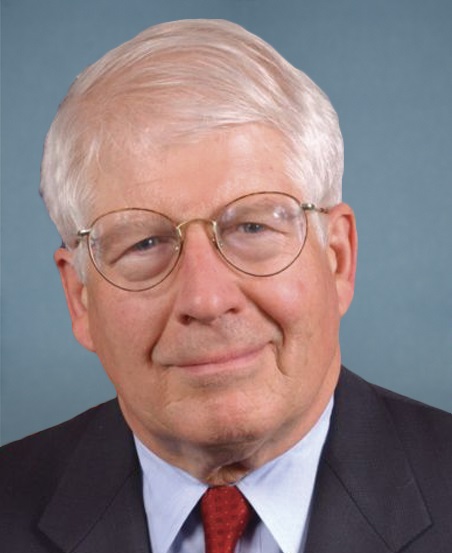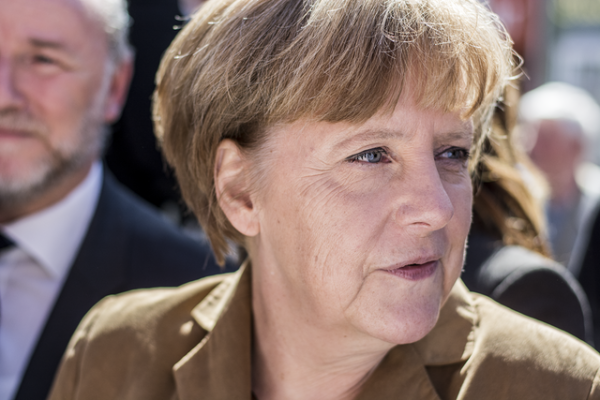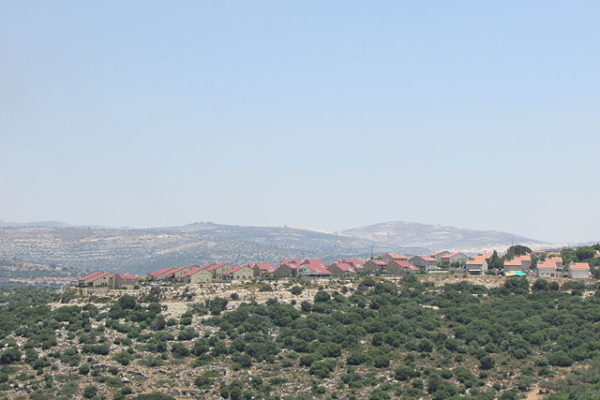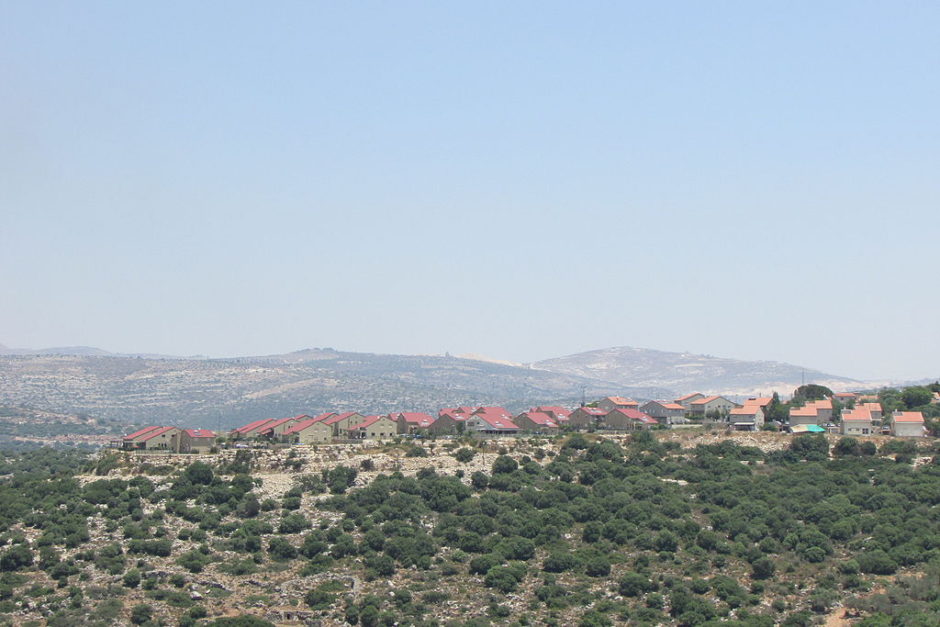It has been obvious, to some at least, that Israel’s protracted and bloody conflict with the Palestinians can best be resolved by means of a two-state solution. This would necessitate the creation of a Palestinian state in areas where Palestinians form a vast majority of the population, namely the West Bank and the Gaza Strip. Israel and Palestine would then respect each other’s sovereignty and coexist as neighbors.
This could be the beginning of a great and cooperative friendship.
But a variety of factors, including mutual mistrust, fear, chauvinism and short-sighted leadership, have blocked a political breakthrough that would finally enable Israelis and Palestinians to coexist in harmony and focus on prosperity instead of the next skirmish or the imminent war.
For Israel, a two-state solution is an absolute necessity, as the former director of the Mossad, Tamir Pardo, pointed out in a conference in Netanya on March 21.

Pardo warned that unless Israel separates itself from the Palestinians in the West Bank and pursues a two-state solution, it risks becoming a binational state, the polar opposite of a Jewish democratic state.
In his view, the current Israeli government is complacently satisfied with the status quo. As he put it, “Israel has decided not to choose, and is hoping that the conflict will one day resolve itself, or that the Arabs will disappear in some kinds of cosmic miracle.”
Israel should not be so smug, he said.
“Israel faces one existential threat, and it’s a ticking time bomb,” he noted in a reference to the imperative of demography. Given their consistently higher birthrate, Arabs will eventually outnumber Jews, and this fact will have devastating consequences. “Eventually, we will become a binational state because it will be impossible to untie the knot between the two peoples. The Jewish and Palestinian populations in Israel, the West Bank and the Gaza Strip are nearly equal, and Israel must act to separate itself.”
He added, “In an extraordinary way, we’ve decided to bury our heads deep in the sand, to preoccupy ourselves with alternative facts and flee from reality while creating other various external threats. The clock is ticking, we must weigh the facts and not the alternative facts and reach a decision. The time has come to choose a decision.”
In a parting shot, Pardo said that this looming internal catastrophe should be of greater concern to Israel than external threats.
These are indeed words of wisdom.
Pardo’s plea was heard in Washington, D.C. On March 24, almost 200 members of the U.S. House of Representatives sent an open letter to President Donald Trump urging him to reaffirm American support for a two-state solution. Trump unleashed a wave uncertainty last month by saying he was partial to both a two-state and a one-state solution.

The letter, facilitated by Gerry Connolly of Virginia and David Price of North Carolina, said: “We remain convinced that a two-state solution is the only outcome that would quell ongoing incidents of violence, maintain Israeli as a secure, Jewish and democratic state, and provide a just and stable future for the Palestinians. It is our belief that a one-state outcome risks destroying Israel’s Jewish and democratic character, denies the Palestinians fulfillment of their legitimate aspirations, and would leave both Israelis and Palestinians embroiled in an endless and intractable conflict for generations to come.”
On the day their letter was released, Germany’s chancellor, Angela Merkel, declared that no “reasonable alternative” exists to the two-state solution.
“Both the Israeli and Palestinian people have the right to live in peace and security, and none of the other options can deliver that credibly,” she said after a meeting in Berlin with the president of the Palestinian Authority, Mahmoud Abbas.

Merkel correctly pointed out that Israel’s settlement policies in the West Bank are leading to “an erosion of the basis for a two-state solution” and constitute an impediment to “the resolution of the conflict.” She also criticized the Palestinian Authority, saying their tactic of denouncing Israel at international forums is less than conducive to the search for peace.
Israeli settlements are indeed an obstacle to reaching a peace agreement. Since Trump’s inauguration in January, Israel has approved the construction of some 6,000 new housing units in the West Bank and East Jerusalem. And in 2016, Israel started building 2,630 homes in the West Bank, a 40% increase over the previous year, according to the Central Bureau of Statistics.
“The sharp increase in settlement construction sends a clear message to the Palestinians and to the international community that Israel is not interested in a two-state solution,” Peace Now stated on March 22. “By speeding up settlement construction, (Prime Minister Benjamin) Netanyahu is leading Israel towards becoming an apartheid state.”

Since Netanyahu’s reelection, Peace Now said, Israel has begun construction of 14,017 homes in the West Bank.
Of late, in response to Trump’s election and pressures from far-right politicians in his coalition, Netanyahu has veered away from his 2009 endorsement of a two-state solution. For Israel’s sake, he must remain true to that commitment. If he formally abandons it in the interests of political self-preservation, Israel will pay dearly, as Pardo recently suggested.
